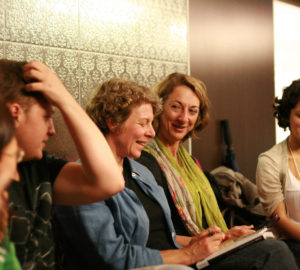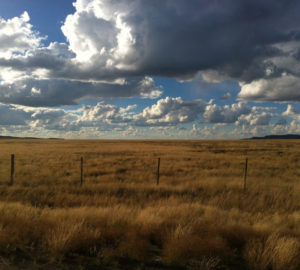BY DO HYUN KANG
It all began the day I turned 100 days old. I don’t remember anything about the occurrence, but I’ve been told the story over and over again by my parents.
September 1, 1997 – a glorious day. Waves of men and women rushed into the large hall, each carrying envelopes of money and parcels of gifts to hand my parents. They were gathered to celebrate a traditional Korean ceremony – a festival that occurs when a child turns 100 days old. The comforting sound of conversation resonated in the hall, and outbursts of laughter never seemed to end.
My father rose among the crowd to announce that the time had come for the most essential part of the ceremony – the baby’s item picking. Under the spotlight, the baby would sit in front of a table on which a variety of items lay, and grab one of them. The item that I chose would symbolize the profession I would pursue in the future.
On my table lay a ball, a book, a mini stethoscope, clothes, utensils, and a pen. My parents say I grabbed the pen without hesitation. The audience cheered and applauded, probably thinking that I would study hard and enter a “high” profession, like law or medicine. Well, to their disappointment, I took my pen of destiny much more literally, and used it to mark the beginning of my allegory as a writer. My sincere apologies to the dozens of men and women I’ve let down.
So that’s how my journey began, but I didn’t really pick it up from then because I was too busy being an infant under the shade of my parents. 2003 – when I was a six-year old – is when things truly became intense.
As a kid, the question that I was almost always asked and bound to answer was: “What do you want to become when you’re older?” – to which I responded every time with: “I want to be a writer”. The thought of being able to explore and delineate my imagination by being a cartographer of words amazed me.
As the only son of a traditionally conservative Asian family, however, my answer always drew tacit discouragement and looks of disappointment. A career as an artist wasn’t desired in my culture, because it was thought to be difficult for artists to earn a living. I guess they took the term “starving artist” too literally. Young, yet not young enough to fail to notice the sadness I was causing, I had to pause my journey. I sacrificed my ambitions on the altar of crude reality.
And just like that, writing disappeared from my life.
It became a nagging passenger at the back of my head, a nobody I paid no attention to. As I grew older and went to school, I was too caught up in my schedule to come to terms with it. Then, in 2013, my family decided to move to New Zealand, where things began to change for us.
We moved to New Zealand because we went bankrupt in Korea, and my parents wanted to search for better economic opportunities and provide me with an English education in the new country. We settled with almost no money at all, and my parents weren’t able to get a fixed job so I was asked to help put food on the table and pay for my school tuition. I worked at least two days a week, moving boxes at warehouses or cleaning the floors of supermarkets. When we failed to pay the rent for our small apartment, we were forced out into the streets, where the three of us slept in the car.
Being homeless was definitely a new experience for my sixteen-year-old self. I was forced to adhere to a lifestyle of showering in public bathrooms, skipping meals on a regular basis, and waking up to joggers staring at me through the window of our Toyota. Negative thoughts and emotions stemming from fear, insecurity, anger and uncertainty incessantly filled my head throughout the day. In order to survive, I needed an outlet.
After years of neglect, I turned to the passenger at the back of my head. I began to write every night, about anything I wanted to express at that moment. On some days, I would immerse myself in a stream of uncensored consciousness, babbling on and on about the thoughts and emotions running through my mind and heart. On others, I gave birth to fictional protagonists and explored exotic worlds with them. My therapeutic reunion with writing was enlightening. When I wasn’t worrying about overdue rent, I was almost always writing. It helped me swallow the bitter pill of being homeless, and empowered me.
I realized that perhaps the true meaning of my choosing the pen on my hundredth day was not that I was destined to become a professional writer, but that I’d always find a way to blend writing into my life.
Thankfully the struggle of being in the streets is over for me, and I’m writing this story in an apartment, celebrating my 19th birthday. Although I’m not the most talented writer, writing’s still more than just a hobby for me. It’s the daily prayer that comforts me at the end of a rough day. It’s the barrel of a gun through which I release my emotions. It’s the spot of color on my drab canvas. And that’s all that matters to me.
With my lifetime partner I can become anything I want to be, and I have thousands of unwritten stories locked up within to assist me and warm my blood for the years to come.
At this point of the journey, it does seem like destiny that began with a pen on the hundredth day.
About the Author:
DO HYUN KANG is a young writer from Auckland, NZ. He wins the July 2016 My Writing Journey Competition.














